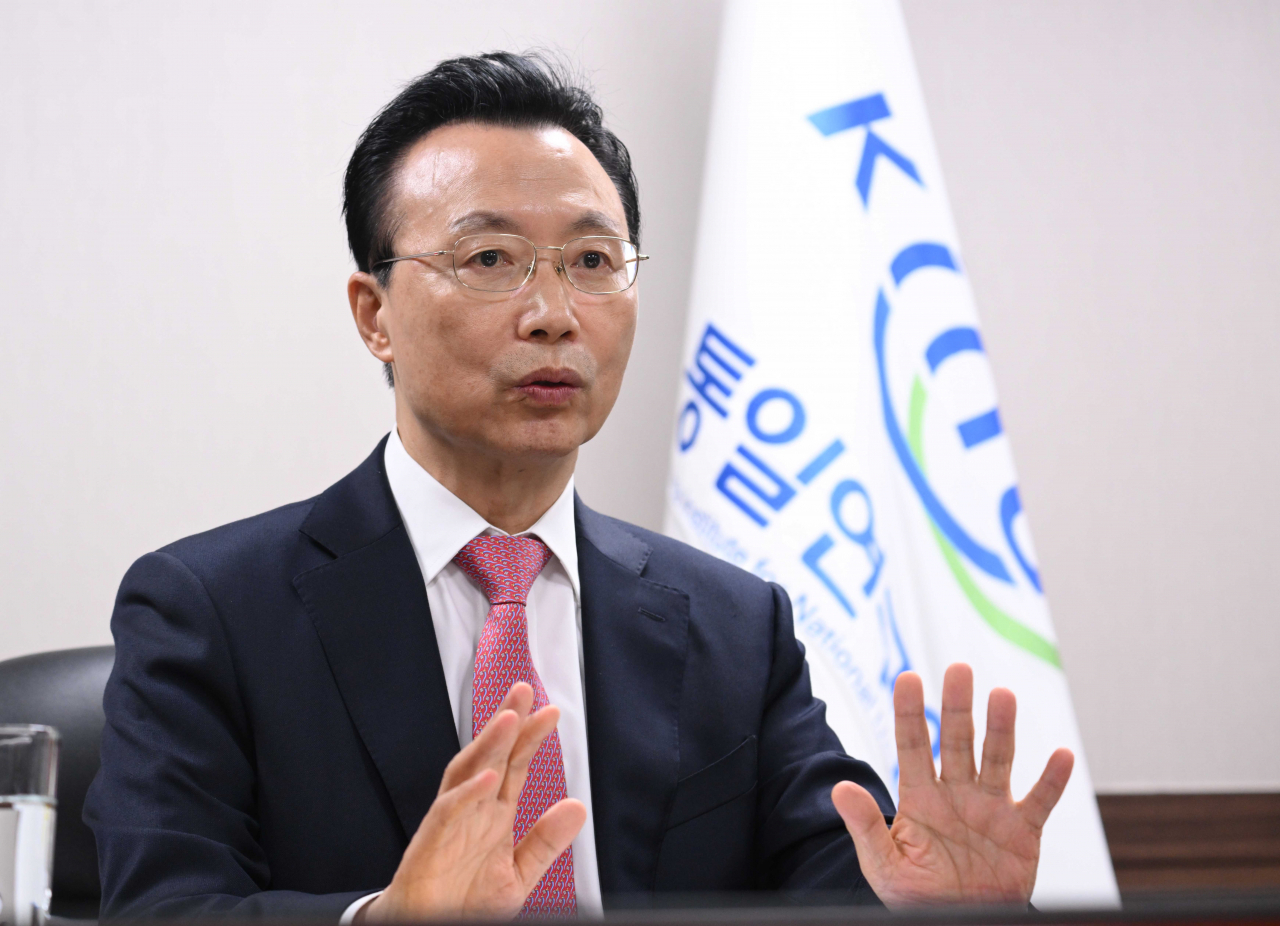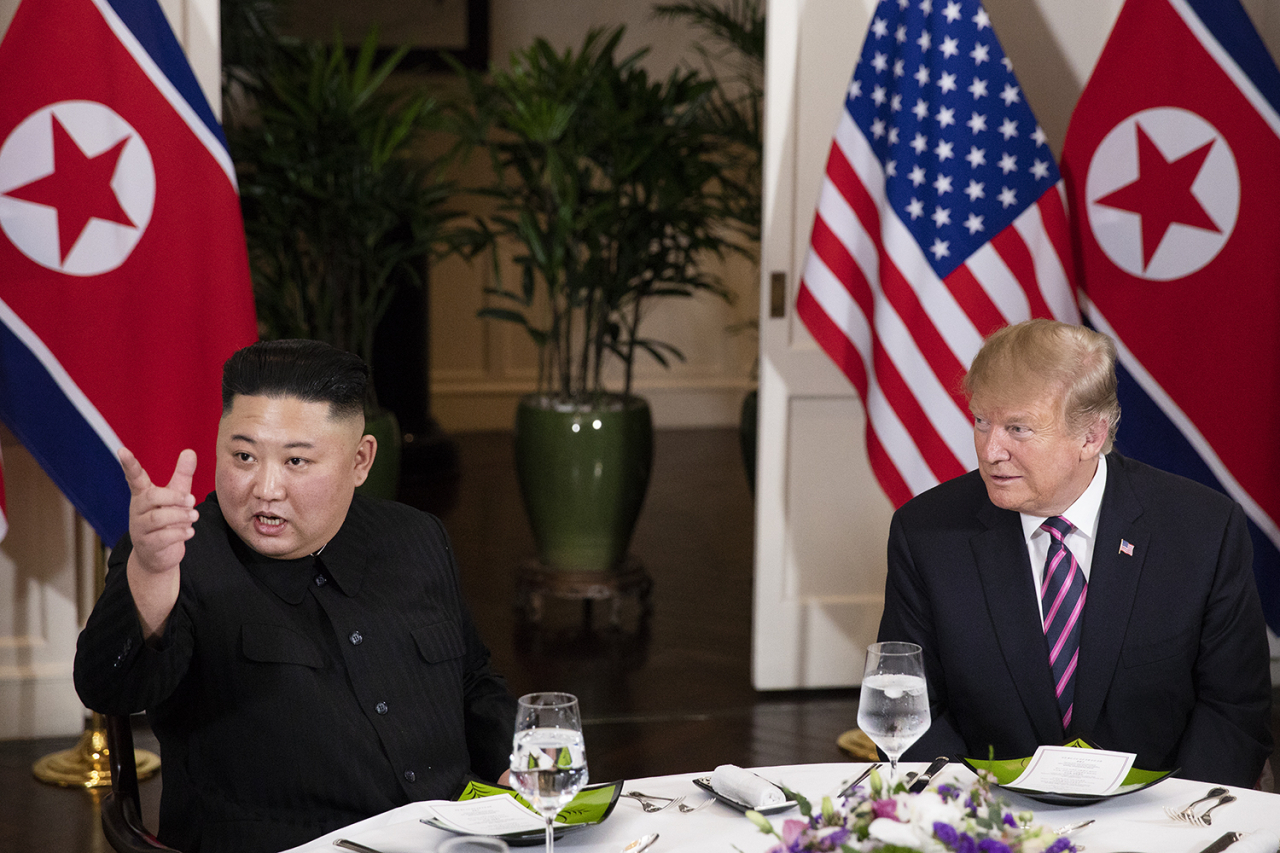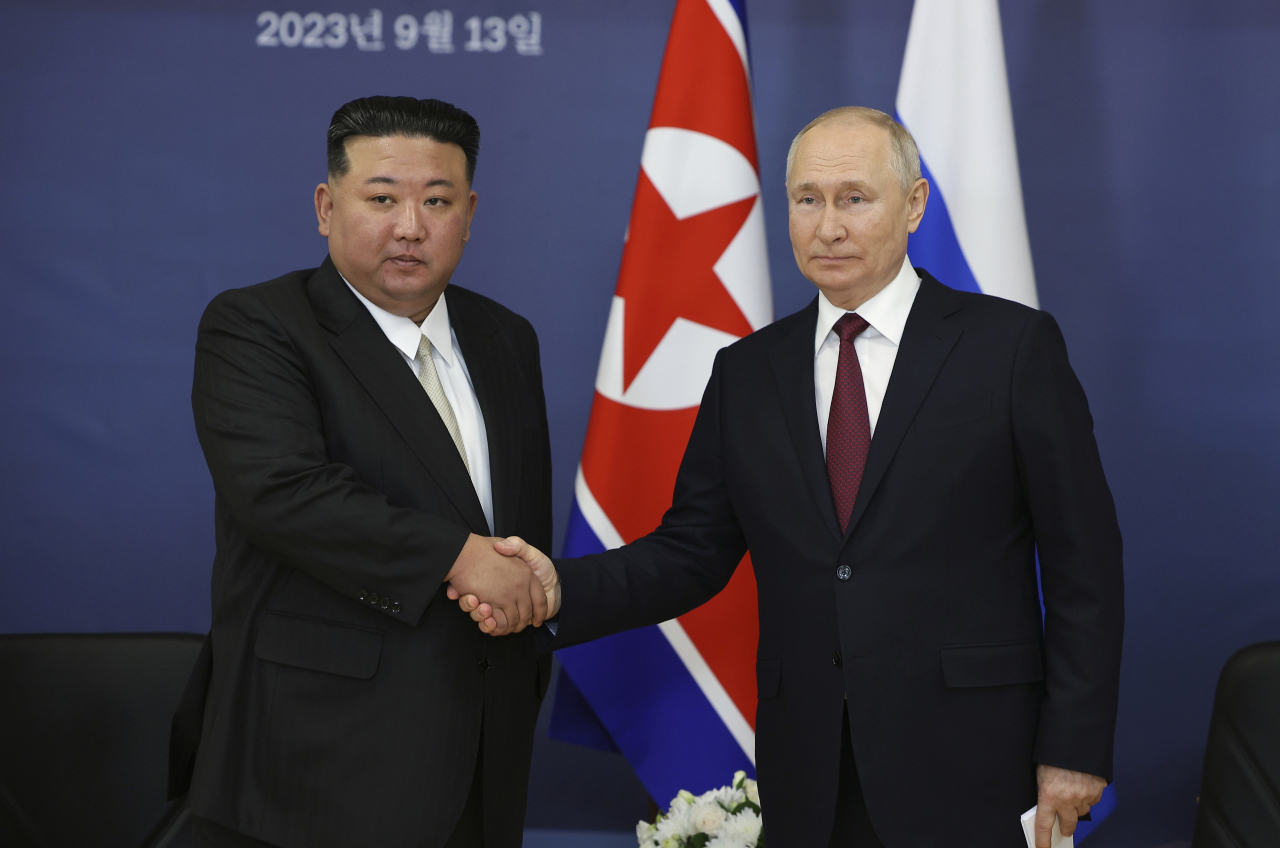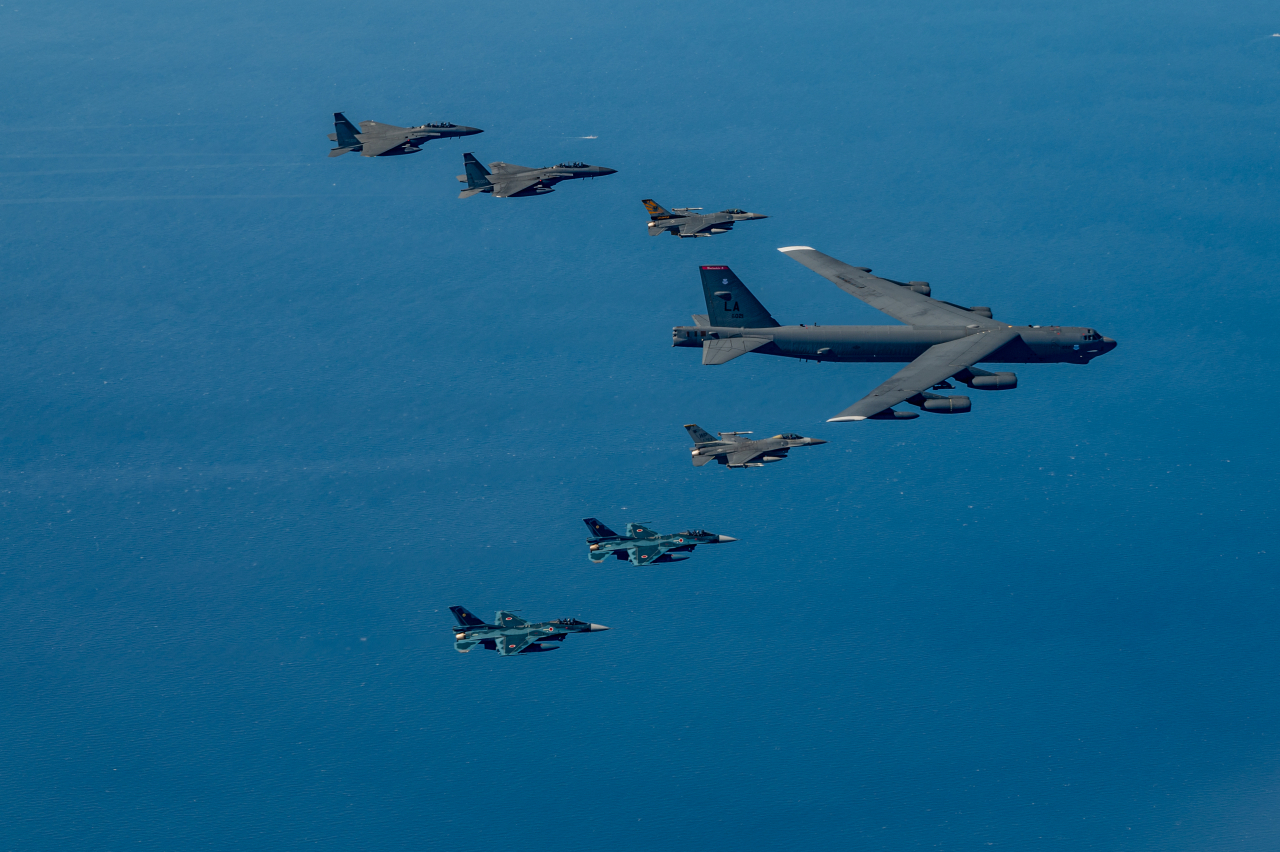N. Korea still has goal of normalizing ties with US: KINU president
"Pyongyang's possession of nuclear weapons serves as hindrance to unification"
By Ji Da-gyumPublished : Nov. 8, 2023 - 15:17

North Korea's top foreign policy imperative continues to revolve around the pursuit of normalized relations with the United States. The strategic goal is seen as the linchpin to unlocking the potential for lifting economic sanctions while retaining its nuclear arsenal, the president of the state-funded Korea Institute for National Unification said.
North Korean leader Kim Jong-un, in unambiguous pronouncements, has characterized the prevailing global geopolitical landscape as a "new Cold War" in his public speeches. Concurrently, Kim has actively pursued a deepening alignment with Beijing and Moscow, paying no heed to the US' repeated overture to resume talks without preconditions.
For certain observers, this trajectory is perceived as nothing short of a strategic and foundational shift in Pyongyang's foreign policy, signifying a departure from the decadeslong endeavor to normalize relations with Washington, a path initially paved during the leadership of the late Kim Jong-il in the 1990s.
However, KINU President Kim Chun-sig, who held the role of vice unification minister during the conservative Lee Myung-bak administration, said North Korea has not deviated from its longstanding pursuit of the overarching goal.
"North Korea sees the US as the country which has the key for North Korea to lift sanctions while receiving acquiescence to the possession of nuclear weapons,” Kim told The Korea Herald on Oct. 30 at his office in Seoul.
"North Korea perceives the US as holding the most critical elements for the country's survival, prosperity and development. However, North Korea's pursuit of improved relations with the US, while simultaneously maintaining its nuclear arsenal, is currently not a feasible approach. Should it be realized, the security situation in Northeast Asia would change completely."

Despite the breakdown of Kim Jong-un's summit with then-US President Donald Trump in Hanoi in 2019, the regime remains steadfast in considering the improvement of relations with the US as its "foremost foreign policy strategy."
The North Korean leader proclaimed a new economically focused strategic direction in April 2018, ahead of the first US-North Korea summit, but he appears to have since revived his Byungjin policy of simultaneous economic development and nuclear weapons possession.
The KINU president added, "If a favorable opportunity arises to strengthen relations with the US, North Korea will actively strive toward that goal."
Kim noted that while there are loopholes due to the lack of cooperation from China and Russia, sanctions are still effective.
Crucial resources that have the potential to fuel North Korea's economic growth are not entering the country, and limited investment is hampering substantial economic development in a country already grappling with economic challenges.
Kim also explained that the current, closer alignment between North Korea and Russia should be understood from a twofold perspective.
"The shift can be interpreted as a continuation of North Korea's long-established tradition of practicing equidistance diplomacy, or maintaining a delicate balancing act in its foreign relations, a strategy it historically employed between both China and the Soviet Union," he said.
With its foreign trade almost entirely dependent on China, North Korea finds this situation less than optimal. Therefore, it appears that North Korea is actively seeking avenues to bolster its ties with Russia and expand bilateral trade between the two countries.

Moreover, in the context of the grinding war in Ukraine, Moscow and Pyongyang have identified mutual interests that have contributed to the enhancement of their relations.
The bilateral relationship historically lacked significant depth, characterized by minimal economic exchange and a shortage of shared interests. However, the current landscape has witnessed a transformation.
Notably, Russia's extensive consumption of military resources in the Ukraine war has generated a demand for weapons adhering to Soviet standards, a resource that North Korea possesses in abundance.
From North Korea's perspective, their interest extends beyond weaponry. They have expressed interest in a range of resources from Russia, including food, energy and military technology.
"However, it's vital to recognize that, in my assessment, this mutual need is a short-term development," Kim said.
"North Korea's economic attractiveness remains constrained, and as the demand for war materials diminishes, their relationship will not maintain its current depth in my opinion."

Kim still believes North Korean denuclearization is an achievable goal. However, the failure of the veto-wielding permanent members of the UN Security Council to fulfill their responsibilities, particularly China, has facilitated North Korea's ongoing nuclear buildup.
The KINU president maintained that the concerted pressure from both Washington and Beijing would ultimately push North Korea to relinquish its nuclear weapons.
"China bears the greatest responsibility. Could North Korea endure the consequences if China were to cut off all supply channels, including those for essential resources like food and energy?" Kim asked.
"However, China has not taken such actions, and this is the primary reason we have encountered challenges in making progress toward denuclearization."
Kim underscored that as China abstains from fulfilling its responsibility and leveraging its influence to compel North Korea to abandon nuclear weapons, it will bear an increasing burden and face escalating consequences.
“In that case, China will face significant strengthening of the military capabilities of South Korea, the US and Japan. In such a scenario, China would also perceive a heightened security threat."
The trilateral military and security cooperation primarily aimed at deterring the common threat posed by North Korea, will see further strengthening in the Indo-Pacific region.
Kim further emphasized that China should recognize how North Korea's growing nuclear threat has led to the deployment of US strategic assets in the region, thereby ramping up US military presence in the region.
"China's tacit acceptance of North Korea's nuclear weapons is resulting in increasingly significant disadvantages for China. There will come a point when China realizes that it cannot sustain this stance," Kim said.
"Consequently, there is a likelihood that China may eventually opt to exert pressure and advocate for North Korea's denuclearization. Furthermore, the denuclearization of North Korea is in the interest of regime security."
Kim also pointed out the paramount significance of achieving North Korea's full denuclearization as an essential prerequisite for the eventual unification of the Korean Peninsula.
"A pivotal step toward a unified Korean Peninsula involves pursuing comprehensive economic development through mutual exchanges. Nevertheless, this aspiration faces a significant impediment in the form of North Korea's nuclear weapons," Kim said.
"As long as North Korea retains its nuclear arsenal, the conditions required for unification will remain out of reach. Therefore, North Korea's possession of nuclear weapons acts as a hindrance obstructing the path to unification."



















